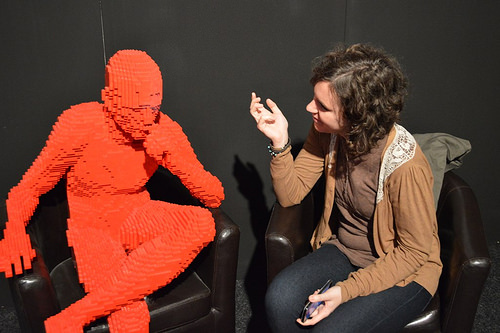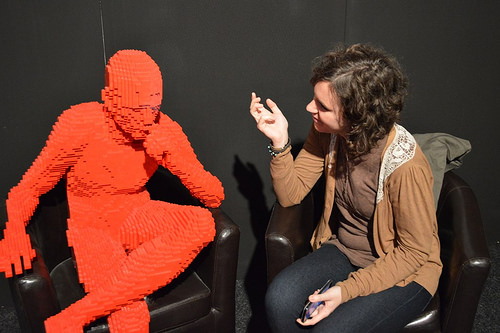The Big News in medical education is that a valuable resource for practicing patient interactions and understanding their concerns is shutting down. That’s right, Yahoo! has decided to shut down it’s beloved, if deeply sad, site that allows people like Dave to post their urgent health-related questions. Will they flock to Quora? Who knows, but for now M4s Sophia Williams-Perez and Marisa Evers, M3 Annie Rempel, and M2 Eric Boeshart celebrate its impact on medical school podcasts with some new questions and revisit some old favs.
Listener Victoria writes in wondering whether an MD/JD degree is right for a health-policy focused career. We can help, and we start by noting that no-one has signed up for this dual degree option at our school in several years.
And listener Shea fact checks (with love!) our recent discussion of options for unmatched senior MDs.
How’d we do on this week’s show? Did we miss anything in our conversation? Did we anger you? Did we make you smile? Call us at 347-SHORTCT anytime or email theshortcoats@gmail.com. It’s always a pleasure to hear from you!
Dave Etler: [00:00:00]Welcome back to the short coat podcast, production of the university of Iowa Carver college of medicine. I’m Dave Etler. With me today in the studio to talk about something very, very, very, very, very, very serious is Annie REM Pell. Hi informer receivers is back. What up, what up and would you look at that?
It’s Eric Bozart. Hey guys. And finally it’s Sophia Williams
Perez or Sophie Williams Perez our time making up her mind. We’ll go with
Sophie today. Okay, Sophie, I’m glad to have you all here today. On this solemn
occasion you’ve probably heard. At this point, listeners, it’s all over the
news, but yeah, who answers you’re shutting down in may.
So thank you for being here. You guys, to help me process what
is probably the most horrible news of 2021 so far? I’m totally sure. I mean,
you know, We had the insurrection
Annie Rempel: right
off the bat.
Dave Etler: I
think this is worse
Sophia Williams-Perez: personally,
arguably similar scales.
Dave Etler: I’m
especially glad to see you Sophia. Sophie, this is your third appearance on the
show. Is that right? I’m so I’m just very happy to have you back. You guys too,
I don’t want to exclude you guys, but
Sophia Williams-Perez: particularly
Sophie. Yeah.
Dave Etler: As
president of the SeaComm student body this past year, I will forgive you.
You’ve been it’s all a facade. I don’t mean to put, I told
him behind emails. Yeah, I totally made it put you on the spot. What’s it like
to lead a bunch of medical studies? I,
Sophia Williams-Perez: the
phrase that comes to mind is herding cats. I’m not surprised. I’m just kidding,
but it’s been fun. Normally at like any given year, I would have anticipated
certain things to happen, but obviously with what has ensued with the pandemic
last year.
Yeah. You were all
Dave Etler: like
last year, you’re all like, yeah. I’m student body, president
Annie Rempel: charity
auction. Yeah. Holiday fees. None of it. Instead you’ll be doing these things.
Lots of emails, apologizing, buddy. Her emails are very graceful. Well crafted.
Sophia Williams-Perez: I
appreciate it. I read them only 87 times, and then I still noticed a typo.
Okay. That is
Dave Etler: humbling.
Worst mass emailing is the worst. Every once in a while, I have to send out a
mass email to the entire university announcing something that we’re doing,
like, you know, our conference. Yay. And invariably, I screw it up. I’m
sweating for you. I will screw it. I will screw up regular emails as well.
So
Eric Boeshart: that
doesn’t. It happened to just like that happens to me on a daily basis. Like, it
doesn’t matter who that’s gone to. I’m like, God, I have to ask my fiance.
Like, can you read over this for me?
Annie Rempel: Yeah.
Dave Etler: Kate
and I are always showing each other our emails to verify that they’re not
ridiculous. I mean, it doesn’t matter.
We all screw them up. Yeah. So, well, good job. The past
year keeping up, keeping up your smiling mask while you dealt with it. With all
that. We’ve got some listener feedback from Shea wrote into the
shortcuts@gmail.com about our last episode in which we discussed the possible
alternate paths for students who are unfortunate, if not to match.
And she says, or he is Shay. I’m not sure. I think it’s
either. Or they say, thanks for bringing to attention. The alternative options
that med students can take. If they don’t match. I completely agree that people
should have other avenues and that knowing there are backup options could be a
relief for med students going through the awful process of not matching.
I heard Holly’s dissent about the lack of training and her
concern for family members who could potentially be treated by these quote
associate MDs. Does she know ARN PS practice independently? Is she aware of
what training they have pointed question? Of course, psych being my specialty,
how they should know that it’s really, it’s actually really competitive and
there aren’t a lot of unfilled spots.
In fact, there are only three unfilled positions in the
whole country, and those were at a new program. that was actually not NRMP
eligible for the match so effectively there were zero unfilled spots. Just my
fact checking for the day. Thanks for bringing this topic to light. You are so
welcome, Shea.
Thank you. Thank you for sending your feedback. I appreciate
that. Any quick comments about
Marisa Evers: that?
I don’t think that not matching should be an option. Yeah. That’s my
Annie Rempel: 2
cents.
Eric Boeshart: It
doesn’t kind of
Dave Etler: crazy.
Yeah. I mean, , like I said, in the last show, the whole discussion was about
me, you know, sort of feeling terrible.
You know, for people who had to go through, you know, like
match and then soap and then have it not work out, and then you have to do it
again next year. And you know, all the problems associate go back to, episode three 61 last week show, and you can
listen to my soap box, my ideas, my ideas, I’m putting quotes around the word
ideas.
But yeah So, thanks for sending your thanks for sending your
feedback. I really do appreciate it. Here’s a listener question from Victoria.
Victoria says, first, I want to thank you for your continued efforts to provide
inspiration information and guidance to pre-med and current medical students.
Thank you for highlighting our intro . I have been a listener for the last few
years and look forward to a new episode every week. Thank you. Secondly, I am
wondering if any, CCOM students are in the MD/JD combined degree program. If
so, what made you decide to pursue this program?
What has been your experience so far? Would you recommend it
to a person who wants to pursue medicine, but has a passion for health
policymaking too? What are your plans? Post-graduation how will you use these
degrees? So many questions that we can’t answer because it’s been years since
we’ve had an MD/JD student Victoria, I checked and I don’t even know.
We don’t even remember how long it’s been. We have this
option, but nobody’s taken us up on it. But co-host AGA Chowdhury looked into
it for us and he had some thoughts. I didn’t know. What, what do you [00:06:00]
guys think is, is MD/JD a health policy? Making, I mean,
Marisa Evers: the
only we were talking about this before, the only person we know who is MD/JD is
Dr.
Thompson, and she did JD and then came into med school and
it seemed like, , A roundabout way to get to where she wanted to be, but you
can do health policy without having to do the JD. It’s just, I guess, a
personal preference of how long do you want your schooling to
Sophia Williams-Perez: take?
Yeah. Right. And like what your health policy Avenue wants to be
Dave Etler: health
policy.
It’s a big, yeah,
Sophia Williams-Perez: it
depends on like what your ultimate goal is with health policy. Like if you
wanted to be more and maybe legislation, you know, like formally in
legislation, whether that’s state, federal national, whatever it is. The JD
might help because then you have some of that background information, you’ve
taken the classes, you know, the nuances about like how things occur on those
given levels.
But if it’s more like a local or do you want it to be in
like organized medicine or things like that, I would think an MPH could get you
to where you want to go, because there’s the AMA and there’s other places like
that that facilitate plenty of physicians that just have an MD or. Have masters
of some sorts rather than JDS that I know of.
Yeah.
Eric Boeshart: It
seems kind of crazy too. Cause like a, if you choose to go down that route, you
don’t really, you would have to eventually probably pick one or the other. It
would seem like, I feel like it’d be hard to be a practicing lawyer and.
Practicing physician. Like it just seems, I don’t know, kind . Of racks my
brain a little bit.
Dave Etler: AJ
Chowdhury looked into it for us. And he says, yeah, it’s a very small program
that requires you to fill out a very specific niche. There’s not much overlap
between the two and assuming the MD is first in your priorities, you don’t need
a JD for many of the legal and policy tasks an MD can do.
Like being an expert witness or consulting in biotech for
pharma. Hospital administrator may be, but you’d probably be better served with
an MBA. He of course had problems with the financial issues of being a JD and
an MD. He says it’s the worst financial choice because you’re adding on three
more years of debt and opportunity costs.
As you lose three years of top end physician income. Law’s
going to make you less money. So if that’s important to you and it’s a good
idea to do things like get involved in advocacy or policy in his estimation before choosing to apply to
a dual degree. Just because it’s so financially, , and time intensive with not a lot of
payoff, unless you have really good reasons and really understand , why you’re
doing this.
So
Eric Boeshart: if
can I ask a question real quick? Yeah. Did, so when ADA was looking at that,
did, did he say that. People who would. Pursue an M D J D that , they would
potentially more likely be going. Like they could do like expert, witness type
stuff. I’m thinking, I’m just thinking, because , I’m a Minnesota native.
And so I’m obviously following the Derek coven trial right
now. And they’re talking about all that testimony, like from, you know, it
sounds like pulmonary care experts and things like that. I’m just trying to
figure out, like I was thinking in the car ride over today. Like , . How does a
person get to that point as a physician?
Like, does someone have to approach me to ask me to, Hey,
you, will you testify in court? Yeah. Obviously you have to be,
Dave Etler: it’s a
good question. He didn’t, he didn’t he didn’t tell me that. I didn’t think of
asking that. But I would imagine that. Yeah. Do you guys know anything? Do you,
have you guys heard anything about this?
I would just imagine that, you know, your, your
publications , would play into that. ,
my guess is it’s something that you, I don’t know if you just decide to become an expert witness or it just sort of
happens to you. Like, so I have no idea.
I
had
Marisa Evers: a
professor in college
who was a psychologist and they were a forensic
psychologist.
So like, they, they were like specific for like an expert
witness and stuff, but it was just something, I was like, they threw
publications and then kind of got involved in it, just like it kept going. And
they just like, yeah. Get hired as an expert witness in a lot
Sophia Williams-Perez: of
things. Yeah. I
Annie Rempel: think
same goes for forensic pathologist and they just have it.
I mean, just, they have an MD and are very routinely called
to be expert witnesses for cases they’ve done autopsies for
Dave Etler: so
clearly more likely to be an expert witness if you’re a forensic, whatever.
Yeah. Right. That makes sense. Forensic
Annie Rempel: lawyer
I mean, you
Dave Etler: know,
you laugh with however you want
at whatever you want. That’s what we’re all about. And the
show you do you it sounds like we’re leaning towards masters of public health
for health policy though, as a easier slash more what’s the word I’m looking
for? Easier, more accessible, more accessible, more universally efficient and
efficient.
Yeah. But JD, you know, if you want to do MTJ, JD, your,
your options are somewhat more focused. Specialized. Yeah. So but good luck.
I’d like to hear more about that. I confess I don’t know much about it, so I
hope we helped. It’d be interesting to hear every show. Okay. Well,
Eric Boeshart: are
we going to there? Yeah. Oh, I was just gonna say, I’d be interested to hear
plans, like what that person plans, like, what, how they view that J D being
used.
Dave Etler: Yeah.
Well, yeah, I’d like to, I’d like to know more about what can we do. It’s not
like I couldn’t have invited her on the show and ever asked a question.
In honor, of our old friend, Yahoo answers the saddest place
on the internet. Let’s give you some exposure to the ideas and concerns of your
potential future patients. Today, I have selected some favorites that we’ve had
on the show in the past, and I’ve picked a couple of new ones.
So let’s see what you guys can make of these questions.
Maybe give some advice, maybe we’ll learn something. I think it will be you
people who teach something, but, and not these people, but yeah, we’ll, we’ll,
we’ll figure it out. So let’s start with our first one. We have this old
favorite from somebody with concerns about [00:12:00] hygiene.
. So my armpits
Annie Rempel: smell
at first, it was my left and it smelled like melted butter and was always
itchy.
Dave Etler: Now
it’s just my right armpit that smells
Annie Rempel: like
melted butter and is always itchy. What’s going on?
Dave Etler: Are
you putting melted butter in
Annie Rempel: that’s
the first question I think
Marisa Evers: about
also if your boo smells like melted butter,
Dave Etler: Yeah,
my armpits smell like cinnamon rolls. When the
Annie Rempel: movie
theater popcorn, there’s
Dave Etler: an
undercurrent for me. There’s an undercurrent of sort of a urinary smell to a
movie theater popcorn. I don’t know. I don’t know if that’s,
Annie Rempel: where
are you going? It’s not enough to make me not
Dave Etler: eat.
Annie Rempel: So
they take the popcorn,
Sophia Williams-Perez: you
know, like behind the wall and then they come back out and hand it to you.
Dave Etler: come
on. Haven’t you ever been like, you know, you just pick it and you’re like,
Well, it’s
Annie Rempel: not
bad.
Sophia Williams-Perez: I’m
trying to think of, you know, the 8.8 million last times I peed. I can’t, I
can’t draw.
Dave Etler: Did
you know that? No matter how large a mammal you are, it always takes one minute
to peak. So you can be an elephant and you will still pee one minute. I find
that hard to believe. It’s true science. I believe it was say no time
Annie Rempel: myself.
I
Dave Etler: have.
It’s pretty cool. About a minute. It’s pretty close.
Eric Boeshart: You
just have a chalkboard in your bathroom. Just kind of like
Sophia Williams-Perez: last
minute, minute and a second. Yeah, I
Dave Etler: go in,
there’s like a chess clock in the back of the toilet. I just hit it. I count
Eric. I can count a secret. Okay. Yeah. I
Annie Rempel: wonder
if elephants get BPH benign prostatic hyperplasia.
Dave Etler: Is
that like a big prostate? Yeah. Yeah. There you go. Yeah. Getting good at this.
Annie Rempel: I
feel like that might spread out the minute. What
Dave Etler: are
the symptoms of curiosity? 50 year olds, 50 year old,
Annie Rempel: man
here. You’re asking for a friend asking for a friend. What
Dave Etler: are
the symptoms of blah, blah, blah, blah, blah. That big, big process,
Marisa Evers: hesitancy
frequency hesitancY.
It can mean that you’re going more often because you’re
struggling to empty your bladder when you do
Dave Etler: go.
I’m a firm believer in always being prepared for anything.
So I was happy to discuss this one a while. If you wouldn’t a partner are stuck
in
Annie Rempel: the
desert with no water, any fluids or nutrition. And your partner is deathly
constipated, like about to die. You are a male, would it be the correct course
of action to pee in their butthole?
If you had no other
Dave Etler: devices
to collect the fluid and scored it in this
Annie Rempel: manner,
why are you going to knock them out? Right. They’re dying
Marisa Evers: apparently
in the desert and your, and your solution is to give them an animal with your
yard.
Annie Rempel: I’d
go find a cactus. Uh You know, aloe Vera type
Yeah, but they said
Marisa Evers: no
options, no options available. The only liquid you have is their urine, but
their solution is to pee in someone else’s butt
Dave Etler: hole
that Annie, I mean, that’s, it’s a good solution. I think the problem is that
you don’t, you don’t have a, device that
you can use to put it where it needs to go.
Other than right. Other than drinking, the cactus keeps and
then peeing in at somebody. But
Annie Rempel: we
are in a bad situation. I think, I think you’re
Sophia Williams-Perez: really
tied our hands with this question.
Dave Etler: I
wonder if that was part of it. Yeah, yeah. Yeah.
Eric Boeshart: So,
I mean, the big question is, is there any nutrition, I guess first, first
things first, is there a nutritional value in your
Dave Etler: state?
What does that have to do with it?
You’re putting it in their butthole.
Annie Rempel: The
issue is the constipation plus lack of. Water and any other
Sophia Williams-Perez: material,
Marisa Evers: probably
constipated, because you’re not, you’ve already taken all of the liquid you
possibly can right
Sophia Williams-Perez: out
of you. Right. And like how long have they been in the desert? So like how long
have they, are they truly constipated or have they just not been eating and
they have nothing to pass, but you still can pass things.
Marisa Evers: Some
Annie Rempel: like
Sophia Williams-Perez: what’s
our mucus contact.
Annie Rempel: Yeah,
Marisa Evers: I
never stopped discuss.
Annie Rempel: Okay,
wait, can we just confirm these are these I’ve been asked to answer. Yes.
Dave Etler: People
have these questions. People have these questions and they go to Yahoo answers.
They, well, they now they can’t go to Yahoo answers. Wiki
Marisa Evers: answers
will be the new Yahoo
Dave Etler: answer
Cora or something.
Yeah. I did I confess, I did look at Quora just to meet,
just to reassure myself. I feel a little better, but the, the, the questions
are a little bit more, I don’t know. Anyway. Point is I’m I’m. Yes. I’m
personally having a difficult time, figuring out a reason to pee in somebody
bought a whole medically.
I don’t want to rule out other reasons.
Annie Rempel: I,
yeah. I don’t think it would accomplish what you had and then you lose that
fluid and then, you know,
Sophia Williams-Perez: goodbye.
Yeah. What if you had to drain the urine later, if you get dehydrated,
Dave Etler: if
they’re constipated. Okay. So deathly constipated. That’s also kales.
Marisa Evers: I
forgot what the depth, so there’s obstipation happening.
Yes. They’re not passing gas as well. They have a bowel
obstruction,
Annie Rempel: so
Marisa Evers: is
going to fines from the
Sophia Williams-Perez: cactus
and just do an X lab. Look at that.
Annie Rempel: What’s
the next lab
[00:18:00] Sophia Williams-Perez:
and exploratory laparotomy kind of from that
Annie Rempel: sounds,
Dave Etler: that
sounds
Marisa Evers: okay.
Very sterile in the desk. I’m not going to,
Dave Etler: I’m
not going to advocate for this, but the next person I read about, who’s done an
X lap with a cactus spine in the desert.
I’m going to be damn impressed. That’s right up there with
the guy who did surgery on himself in the Arctic. You know what I’m saying?
Yeah. Or in the Antarctic anyway. Okay. It’s a great question. Thank you. Yeah.
Who answers? Let’s look at the next one. You know not a small number of our
Yahoo answers discussions over the years.
We’re about pranks by alleged friends. So here’s a new
example. My friend played a prank on me and put Windex and my
Marisa Evers: Gatorade
in my stomach kind of hurts. Should I make myself out? Make a couple of times.
Dave Etler: Or
what, why do, why do our friends do this to us? You know, my friend is always,
my friends are always putting Windex in my, Hmm.
Is this a message? This is a message. Your friend is trying
to tell
Annie Rempel: you.
They’re
Marisa Evers: just
trying to give you ethylene glycol poisoning. Or
Sophia Williams-Perez: maybe
they saw a big fat Greek wedding. I was thinking that, what have you ever seen
that? It’s like, they put Windex on everything if you’re, if you’re sick, but
Windex on it, if it’s something sturdy, put Windex on it, right?
Yeah.
Marisa Evers: Our
toxicologists would say, please don’t do that.
Dave Etler: Yeah.
Let’s, let’s, let’s be clear for our listeners to not, we don’t advocate. I
mean, we don’t have a kid, a lot of things that we’re talking about. We don’t
certainly don’t advocate. Cactus spine X labs, and we don’t advocate pudding,
Windex. We don’t advocate friends, especially putting Windex in there.
I mean, if you want to do it yourself I still don’t
recommend it. But friends, shouldn’t
Windex each other. That’d be the new tide pod. This
Annie Rempel: is
ground zero.
Dave Etler: Terrible
idea. Yeah, you should make yourself vomit probably or, Oh, how about call
poison control center? Yeah, definitely call poison control.
That’s step one. I think probably step two is yeah, probably
make yourself vomit. That’s fine. Right. Well,
Annie Rempel: where
they drink? Like, did they take a sip? And they’re like, Oh, this tastes gross.
Like how much did they consume? I’d want to know that.
Marisa Evers: I
mean, you probably. Give them some IV fluids anyways, like you don’t want to
Dave Etler: vomit.
Okay. So you don’t want to my understanding of, , vomiting
after consuming something poison you. Don’t definitely don’t want to vomit. If
it’s corrosive, then you’ve got another issue. Yeah. Your esophagus already had
enough problems on the way down. You don’t need to make it worse on the way up.
Yeah. So I’ve always, I feel like that’s, when they say
don’t induce vomiting, you think? Yeah.
Sophia Williams-Perez: What’s
the active ingredient in Windex. So definitely the self language. I know
Marisa Evers: that
I was on a toxicology rotation. I talked about the toxic alcohols.
Dave Etler: So
definitely glycol. That’s not the stuff in Antifa.
Annie Rempel: It
is.
Marisa Evers: Yeah,
it is. Yeah. So like Windex has. Different things within it. And like ethylene
glycol is one of them. I’m pretty sure. Yeah. And then, so like that can cause
you to have some like metabolic abnormalities so you can get an acidosis that can
happen. And that’s like, there’s an acronym called mud piles and it talks about
like an eye on gap, metabolic acidosis.
Dave Etler: Okay.
I thought we were, that we were getting back to the cactus anus.
Windex. And you can have some mud piles,
Marisa Evers: actually
just a spa that we’re sending them to.
Annie Rempel: Very
bizarre.
Dave Etler: Okay.
Well, see, we did learn something. I did learn something today. Appreciate
that. All right. Here’s another one. We can discuss there’s another oldie about
the spread of. Insect borne diseases, a fly hit the inside of my lip earlier.
Can I get a disease or something? Put was feet away and may
have gone on it. I wiped my lip right after with my shirt, please help I’m
freaking out. I remember liking this one mostly because of the voice and it
says poop was feet away. I mean, this can happen to any of us really. It’s
really not.
A weird question in the sense that, , it’s not like, ,
butter pits or . Friends feeding us, Windex. This is a real thing that can happen.
And then you might be concerned about, what would you say to a patient who
expressed this concern? And it was like, doc poop was feet away from this fly.
In my mouth. I’m
Annie Rempel: so
sorry. This happened
first and foremost.
Dave Etler: Show
your compassion. I like it.
Annie Rempel: Can
you tell me more?
Dave Etler: I
can’t speed away. Come on. I’ve told you, I’ve told you everything you need to
know poop was feet away. It was right there.
Annie Rempel: I
mean, the amount of like fecal matter, that’s being transferred on a little
feet of a fly is probably pretty darn small, but you know, monitor your
symptoms.
I’d say stay hydrated, you know, like
Dave Etler: under
your symptoms. That’s what I always say to my watching race. That’s what I
always used to say to my children when they’re like, I have a stomach ache and
I’m like, well, let’s, we’ll, we’ll Keep an eye on it. See what happens. I
could be a doctor. I really could.
All right. Let’s see. This one, you guys are ambitious. So
this previously aired question might hit a nerve for you in a couple of
different ways.
Annie Rempel: Years
old, never been to college. Will I get a job, putting people to sleep for
surgery and get paid for it from next month? I never done it before. I will
ring hospitals in my city tomorrow.
They will let me put people to sleep in theater,
calling hospitals, she’s doing the right thing. She’s asking
the question. She’s calling
Dave Etler: hospitals
tomorrow.
Annie Rempel: To
ask if it was all fields that call,
Dave Etler: I love
this [00:24:00] idea because it like, okay, so
Annie Rempel: this
question, clearly this person,
Dave Etler: this
question occurred to this person moments ago. Right. And they were like, I
could put people to sleep. Yeah. Anybody can do that.
Annie Rempel: I’m
going to call hospitals tomorrow. I
Sophia Williams-Perez: want
to know how she’s going to do it was just like slug them.
She knows that it’s usually done via medication and she just
takes
Marisa Evers: her
rag.
Annie Rempel: How
hard could it be? You’re just good people
Dave Etler: sleep
Annie Rempel: anyway.
Yeah.
sounds like a, would be serial killer
Eric Boeshart: or
those people that gets away like in person, I think a doctor.
Annie Rempel: I
just need practice.
Dave Etler: That’s
an interesting theory. Like this person is a serial killer who is looking for
an outlet for his or her destructive urges doctor. Oh my God. I mean, yeah,
it’s, that’s actually really good.
I mean, you know, like you could be a psychopath. I dunno if
that’s the proper term for a serial killer, but let’s just say it as you can be
a psychopath. And channel , your bad desires into something good. And that’s
what this person is doing.
Eric Boeshart: It’s
like, they’re asking permission. Like, can I try? Yeah.
Marisa Evers: The
worst they can say is no,
Annie Rempel: don’t
move on to the next hospital.
Dave Etler: Do you
know hospitals in my city, one of them is going to . Surely, you know, you miss
a hundred percent of the shots you don’t take. It’s like dating.
Annie Rempel: Oh
Dave Etler: man.
Oh my gosh. Actually, I’m going to put
this on my list of questions that patients should ask before surgery. When was
the last time you hired somebody off the street to put me to sleep because they
called you one day and you were like, Oh shit. Yeah.
We’re our anesthesiologist is late today and we have
somebody that needs to be put to sleep right now. Actually, here’s another
question just occurred to me. Are they applying for euthanasia? Do they think
like, like, like pets, you.
Annie Rempel: You
still
Marisa Evers: have
to go to like some sort of schooling for that.
Annie Rempel: Just
putting them
Dave Etler: to
Annie Rempel: sleep,
Dave Etler: going
off to a nice
Annie Rempel: rest.
The long nap,
Dave Etler: the
long, long dirt nap,
Marisa Evers: the
farm
Sophia Williams-Perez: always
made that joke about
Annie Rempel: Jasmine.
Did you lose a pet now? She’s living. She’s good. Why is your mom on the
Dave Etler: carpet?
She’s the oldest kitty cat. I assumed it was cat 18. I assumed she was a cat.
She has a cat. I don’t know what I’m asking. I don’t know what I’m going to do
when my cat gets old.
I’ve only been she’s she’s only probably we think a couple
of years old. So it’s a little, it’s a little early, but we do love her. It was
really early.
Annie Rempel: We’re
not even thinking about it. I know.
Dave Etler: I
know.
Marisa Evers: Well,
most of our cats, whenever they were getting to that time would just run away
and they’re like, Oh, it’s time.
Goodbye. Is
Dave Etler: that
what you call that backdoor? You had indoor outdoor cat, cheaper
Marisa Evers: MCAT
so that they like were allowed to like come and go as they pleased. But like,
they always stayed on our property, but then our cat turned 22 and she just
Dave Etler: disappeared.
Okay. Yeah. Cats do that when they’re sick, they sometimes go and hide.
Yeah. Yeah, my cat’s an indoor cat strictly because I won’t
let my pretty precious. Kitty out of my sight. I don’t know
Sophia Williams-Perez: ours
was just too fat. We couldn’t let her outside. Otherwise she’d get eaten
Annie Rempel: on
anywhere for her life.
Dave Etler: Our
cat was a stray was Australia that was picked up and, and, and and neutered
and, you know, th the shelter and all that kind of stuff.
So she lived a life on the, on the main streets. And she
probably had kittens at some point According to the vet. So, you know, she led
a hard life, I think. Yeah. I also think she might’ve been abused by
somebody she acts weirdly in certain
situations, like when I hold a broom. So I’m a little concerned about that, but
she’s got a happy life now.
But yeah, I don’t want her getting out of the house. I feel
like she’ll just run across Rochester and you know, the end, the end. She’s my
baby.
Marisa Evers: Timothy
just likes to hang out with the squirrels. His name is Timothy Timothy,
Dave Etler: Timothy
Marisa Evers: He
just likes to like, look at the squirrels. So we left him outside. He’s also
mentally challenged. So we kind of just let him do whatever he wants.
Dave Etler: I do
wonder a little bit about Fishwick that the formal
Eric Boeshart: diagnosis
mentally challenged. He got attacked
Marisa Evers: when
he was a kitten and our, so our cat had kittens and Timothy was one of them.
And our dog was very selfish of attention and attack the
kittens and ticket. These organs were outside, like, yeah, I found Timothy when
he was like that and we rushed him to a hospital and then he had some brain
injuries because of it. So he is mentally challenged,
Dave Etler: crapped
my
Marisa Evers: pants.
It was very sad, but he’s doing very well.
He’s very lucky, but he does strange things. Because of it
where like, when he’s happy, he chews on his tongue and like, he can’t drink
water. Normally he steps in his bowl and throws it in his face. It’s really
cute. We let him do whatever he wants, because I think he’s our dad.
Dave Etler: She’s
my baby. I don’t know what to
Annie Rempel: do
now. How do we recover? I don’t know what this was
Marisa Evers: like
15 years
Annie Rempel: ago.
He’s fine.
Dave Etler: Okay.
Annie Rempel: Once
was a tangent of all tangents.
Marisa Evers: Remember
we started with a fly peak.
Annie Rempel: We
got to,
Dave Etler: I’m
going to move on to the next question. No no.
All right. So there is a lot of insecurity on.
Yeah, who answers and I [00:30:00] hope that doesn’t
transfer over to whatever options we have in the future. But this is, you know,
this is exemplified by this person’s recent concerns that I actually think you
can all relate to. And I don’t mean that you’re ugly. Oh, I gave it away. Come
on. Is it possible bad sleep?
Make me ugly. I’m 16. Unfortunately for a long while I was
getting maybe five hours of sleep on school nights. It did not affect my
height. I’m pretty sure. And lately I’ve been able to get more sleep mainly
through naps, but I feel like, look
Annie Rempel: ugly.
Could that be due to the sleep? Oh my God.
Dave Etler: Lack
of sleep.
Make it ugly. It can make me act
ugly.
Yes.
Marisa Evers: So
there has been
research that has shown that whatever side you sleep on, it
will become more puffy in your face. So that’s actually kind of why they
suggest that you like sleep on your back because it can affect where you get
wrinkles on your face and like the.
Special cemetery. And that will actually affect how
Dave Etler: are
you talking about when you’re a kid? No, it
Marisa Evers: can
happen now. No, I know I am a science
speaker and it really upsets me cause I’m like, Oh, I’m always going to be
asymmetric.
Annie Rempel: I
don’t need to be ugly
Dave Etler: face,
sleep, sleep person. I don’t know how to put that really, but
Eric Boeshart: we’re
all just lopsided.
Can you tell which side
Dave Etler: can
you guys tell which side I sleep on?
Annie Rempel: You
are correct.
That was my preferred sleep side.
Marisa Evers: This
can also tell which side you sleep on because it stimulates growth of your
hair. Cause my hairstylist did this last time. I got my hair cut. There’s
longer or longer on the side because like the wrestling, when you move your
head, it stimulates hair growth. I
Dave Etler: am now
going to sleep on my forehead.
I have a problem. I have a pattern about this issue. Will
that work for 50 year olds? God, I hope so.
Marisa Evers: I
secret doctors. Don’t
Dave Etler: do
this one strange trick.
Annie Rempel: To
Dave Etler: alleviate
your baldness problems. Okay. I like it. See it every time we do this
Annie Rempel: spit,
Dave Etler: I
learn things. This is why we do this.
Annie Rempel: I’m
an educator.
Dave Etler: I’m an
educator by bringing this to you. I am an educator. All right. Here’s an old
favorite. I think. Probably every one of us in this room can understand
sympathize with let’s take some tingling
Annie Rempel: and
pants. What is the most likely reason for this? That’s it? That’s my
Marisa Evers: question.
I heard tingling with a G or tinkling tingling, piddling the nurse.
Dave Etler: I
think this is something we can all relate to and Well, I’m a little surprised
that this person doesn’t know what’s going on. I mean, you’ve all had it to
Eric. You’ve had it.
Annie Rempel: Yeah.
Lateral cutaneous
Sophia Williams-Perez: for
moral nerve. Your pants are
Marisa Evers: just
a little too tight. Yeah. Or your impression of a nerve. Or you
Annie Rempel: were
pregnant, your pants are tingling like this. How long? Like, is it
Sophia Williams-Perez: shorts
or actual like long pants? Because if it’s shorts, then you would assume it’s
just like, you know, only me up, but if it’s full pants, then it could be
anywhere from ankle to
Eric Boeshart: hips.
I’m just thinking of like the simplest stroke. Localization
stuff. Just where do you have sensation?
Dave Etler: Whoa,
Whoa, Whoa. You cannot just go past that.
Marisa Evers: An
anal wink,
Annie Rempel: Wink.
Yeah.
Dave Etler: I
mean, I, I, I think I understand what you’re on here. I didn’t realize this
Marisa Evers: one.
Yeah. So that’s like, if you have an injury, like a trauma response, that’s
something that you’re going to look for. Or you can also kind of injury. Like
if you had a spinal injury, they want to make sure that everything you’re
having sensation and still having reflexes.
That’s also why sometimes they’ll, they’ll say if you have a
finger and they have a butt hole, you need to check to make sure that the
sphincter’s intact.
Dave Etler: But
you can, why did they put it that way? Why do they put it that way, Marissa, by
that way, if you have a finger and they have a butthole, like
Marisa Evers: everyone
should be having that checked, that’s not a real thing that actually happens,
but it is pretty frequent where it’s like, that is part of like a primary and
secondary survey.
When you have a trauma response, you have to check if they
have like their sphincter intact. We in the
Annie Rempel: desert.
Dave Etler: wow.
See again, learning things.
Annie Rempel: Okay.
Eric Boeshart: Thinking
you still
Dave Etler: processing
dead. Always. , I will process for hours after today. All right. Next. We’ve
got another hygiene related question. It’s a big topic on Yahoo answers.
Annie Rempel: What’s
a good comeback
Dave Etler: for
when people say taking above is dirty. I shower, but I also like taking baths
because I sit down it’s relaxing and I put lavender, Epsom salt and Rose oil to
relax my muscles and make it smell good.
In passing conversations, I’ve leaned on that I took above
and someone will interrupt me and say, taking above is just fading in your own
debt. I got embarrassed because I never thought about it like that, but
technically that’s true. And everyone agreed. So I was really embarrassed and
didn’t know how to respond.
Is it really bad to take above? I mean, what can I say?
Because I take a lot of buffers and I don’t want people to think
Annie Rempel: on
gross or something. [00:36:00] No, that’s awesome. I know
Dave Etler: this
person’s like, I just want to have a nice Epsom salt Rose oil bath. It sounds
lovely to make myself happy. And do it every day.
Annie Rempel: Yeah.
Can she draw me up a bath?
Marisa Evers: She
just showers after she can just tell or shower or
also what you do in the bathroom is your own business.
Dave Etler: You
gotta remember that
Annie Rempel: for
Sophia Williams-Perez: your
friends.
Dave Etler: Yeah,
no, I I’ve not taken a bath since I was a child. I think probably that’s just
not a thing, Eric. You take baths. Do you, do you like, do you like S you know,
maybe set some candles up and like Rose oil and Epsom salts and put on a little
meat
Eric Boeshart: glass
of wine. This is a cup of precession, my fiance.
And I had like,
Dave Etler: I,
well, okay. I’ll bring it out. Bring it out there.
Eric Boeshart: Well,
it it’s, she’s, she’s a bath person and I’m a shower person. And you know,
again, just like she, like early on, she was
Annie Rempel: like
Dave Etler: calling
your fiance a dirty woman.
Eric Boeshart: It’s
one of those things of like, she, she tried to convert me, I guess, that not
convert me, but you know, like, she’s like, Hey. Have you ever tried this? I’m
like, honestly, I’m like, no, I prefer cha you know, get in, get out, get
clean. But then again, I’m, I’m also the type of person that I’d take a long
shower too.
So like, I kind of get the benefit if you’re just trying to
like, turn your brain off, just, just shut down. Yeah.
Dave Etler: But
like, I like me a long shower when I can get it. Yeah. It’s a little hard
household of four people with, you know, two kids who also like to take long
showers and, you know, 40 gallon, hot water tank, but that’s just, that’s just
the logistics.
All right. your
fiance convinced you to take a bath? Did you try?
Eric Boeshart: Yeah,
I have, yes, it has its benefits, but I’m also. Six four and don’t fit in most
bathrooms.
Annie Rempel: So
it’s challenging.
Eric Boeshart: There’s
logistics there that
Dave Etler: it’s
long time since I’ve seen you. I forgot that you were, that you were tall.
Tall
Annie Rempel: boy.
Okay. Wait, my question is though, so Erica, your house It’s your bath, tub and
shower one like do, do you, do you step into that? I feel do you clean it? Do
you clean it
Eric Boeshart: again,
Annie Rempel: Val?
Every
Dave Etler: shower
you do? No, no,
Annie Rempel: no.
Dave Etler: You’re
not saying clean it after every shower. No,
Annie Rempel: no,
I’m just curious. Like, I, I feel like if you had like two bathrooms or like a
bath tub specifically, and then a shower that you walk into specifically, it
feels like those are like separate, but I know a lot of bathtubs have a shower
over it and you can kind of choose.
And I feel like that’s like, I don’t care about my own body
dirt. I feel. I would be more weirded out by like, if this is
Sophia Williams-Perez: like,
yeah, like right now, my drain has a little ring up ratio, Mar sessions.
Marisa Evers: Why
Annie Rempel: haven’t
you cleaned that shit? Just like the last couple of days yet?
Dave Etler: We do
not judge.
Marisa Evers: You’ve
noticed it.
Annie Rempel: Sending
emails. Okay. So many emails. Here’s the
Marisa Evers: thing.
I had friends in college who were males who never cleaned their bathroom and
they had mushrooms
neurotic
Annie Rempel: about
it. I’m having a, an anal wink moment here.
Marisa Evers: They
just have, they, I guess they didn’t know how the curtain works. I dunno, but
the water would just splash out of their shower. Yeah. Onto
Annie Rempel: the
Dave Etler: ground,
outside their house.
Marisa Evers: Onto
their bathroom floor and mold grew and then mushrooms sprouted from that mold.
And they just
Dave Etler: never
dealt with it. Some commitment to not washing your cleaning at some point.
Annie Rempel: But
these were your friends.
Eric Boeshart: I’m
not wanting to talk because. So it’s like a very familiar situation. So
Marisa Evers: I’m
amazed and appalled at the same time of the standards that especially college
age boys will live in 18 to 21 year old boys deal with,
Dave Etler: you
know, some, some of us didn’t learn a lot about cleaning when we were
children’s and we had, we had parents specifically moms back then we did a lot
of it.
Sophia Williams-Perez: We
don’t have moms.
Annie Rempel: Well,
I want it to be,
Dave Etler: I want
it to be a, you know a feminist when I was discussing this. Hm.
Marisa Evers: My
mom is one of those neurotic people that will clean the bathrooms and shower
every day. This
Dave Etler: is
reminding me that I should clean the bath. Yeah, me too.
Annie Rempel: Sophie
Dave Etler: feeling
very strongly. Then when I go home tonight, though, there’ll be a little
bathroom cleaning.
Annie Rempel: I
don’t want it, you know?
Sophia Williams-Perez: Recommend
a knife or scissors in the mushrooms
Annie Rempel: are
these edible
Marisa Evers: that
you can, you can eat them or that you can have a psychedelic trip or you can
die
Dave Etler: flame
thrower. I would, I would rush
Marisa Evers: in
the house.
Annie Rempel: I
live in an apartment
Dave Etler: complex. them
Marisa Evers: all
share the same plumbing [00:42:00] anyways. And the mushrooms are probably in
the next 30
Sophia Williams-Perez: minutes.
Dave Etler: The
thing about this is if Sophie’s apartment catches fire for no reason, for no
particular reason, you’ve got one week. All right. Let’s mushrooms. All right.
You know, every one of us, we, you know, we’ve already talked a little bit
about poop. Every one of us poops, it’s another big deal on Yahoo answers.
Let’s see what we can do for this person. What should I do help? I took a
sodium phosphate enema because I was constipated and it said it should work
within minutes up to an hour, but an hour went by and nothing. So I did another
one.
Then half hour went by and they’ve been constantly shutting
since then. I read the bottle, which I should have done first. I know, but I
Annie Rempel: didn’t.
And it says can cause serious dehydration or kidney problems if taken more
Dave Etler: than
one proper dosage, is that what is going
Annie Rempel: on
or will I be okay please? Only serious answers.
I’m
Dave Etler: not
sure we can comply with that last bit, but let’s see what we can do to help
this person. One or two doses is this problem. Just
Annie Rempel: increase
Marisa Evers: your
oral intake. And then if drink, drink, drink, drink a lot. And if you still are
hydrated, go to the hospital.
Dave Etler: Yeah.
Sodium phos. Can you, so what’s, he’s talking about an anima.
In this case, but I’ve, I’ve had the pre-surgery like drink.
Is it the same shit? Coli
Marisa Evers: is
right. Don’t you get that pre surgery drain?
Sophia Williams-Perez: I
don’t know what the active ingredients are actually cold is like not bowel
prep. It’s bowel regimen. It’d be like, just to keep stool, soft bowel
movements. So Cola wouldn’t be like the stuff
Dave Etler: that
you would take if you were having like intestinal surgery is what I’m talking
about or like a colonoscopy you’ve got to get rid of it.
Yeah. Yeah. The go lightly is what they use her, which is
not which, which is like the worst name for a product ever, because it is not true.
You do not go like
Annie Rempel: heavily
Dave Etler: for a
long time. It’s another respective from a 50 year old.
Yeah. Yeah. Increase your intake of water.
Marisa Evers: So
GoLYTELY is sodium sulfate, sodium chloride, sodium bicarb, and potassium chloride.
So
Dave Etler: potassium,
Marisa Evers: sodium,
France without
Sophia Williams-Perez: fleets.
What am I? Oh, perhaps it’s just showing me. I should probably brush up before
Annie Rempel: intern
year. Oops.
Dave Etler: What
are you going to do again? Oh,
Marisa Evers: I’m
blanking.
The first thing that comes up is fleet and it goes to, Oh
Sophia Williams-Perez: yeah,
you’re going to, so I knew the cactus spine. Excellent. That’s
Dave Etler: right.
Should have known. Sorry, what were you saying?
Marisa Evers: The
first thing that shows up is for the fleets is it just says gentle glide,
Dave Etler: gentle
glide. Is that a feature of
Marisa Evers: fleets
that there are still glide tip designs for maximum comfort
Annie Rempel: soft
it’s flexible.
Dave Etler: It’s
fair. Gliding. That sounds nice. I’m
Annie Rempel: glad
right on brother.
Dave Etler: I’d
rather it be that than other words,
Annie Rempel: rigid,
Dave Etler: slamming
special slamming tip,
Annie Rempel: rigid
wide gauge tip,
but yes, over you’re right. It is study impossible. That’s
under
Dave Etler: that.
That’s in another section of Amazon. Oh my God. How long have we been doing
this?
Sophia Williams-Perez: dangerous.
Dave Etler: Oh my
God. All right. I’ve got one more. Over the years, we’ve, as I’ve said, we’ve
actually learned a few things from our discussions on Yahoo at questions. But
sometimes I learn things from the answers to start. Here’s the question. Let’s
see if you know. The possible diagnosis for this person who is very concerned.
I’m going to get me a better. Okay. Here we go. I have white
Annie Rempel: dots
around the gland of my penis. What is this? It’s a very good
Dave Etler: question.
You’ve got white dots, multiple thoughts.
Annie Rempel: Do
they
Sophia Williams-Perez: ever
do drops on Rose pedals?
Annie Rempel: But
Sophia Williams-Perez: then
I would say good pal to hurt.
Annie Rempel: Oh,
okay. Are these painful? We need to know. Are they painful
Dave Etler: or
not?
No, that would have been, that would have been something I
would’ve
discussed.
Yeah.
Annie Rempel: I
Sophia Williams-Perez: have
painful white
dots
Annie Rempel: or. Yeah.
Dave Etler: Okay.
That’s not what the answer was. You could be penis, you could have penis
deaths. I’m sure that’s a thing. What’d you call it?
Cockney.
Annie Rempel: I’m taking that
out.
Dave Etler: Don’t mean to
align our friends across the pond.
brilliant. Yeah, the answer that was in the th those are all
probably, I mean, you know, like I’m, who am I to judge? Differentials. I
don’t, I’m not a doctor, but the one that I learned about in the answers was in
my mind, earns the award for the most. What the
name of a condition? Pearly penile papules.
Annie Rempel: Is
that
Sophia Williams-Perez: an
accident like gnosis cause it just sounds like the
Annie Rempel: description
of
Dave Etler: what
they look like. Yeah. There’s a description. Pearly pearly penile papules, Y
Annie Rempel: yeah.
Sophia Williams-Perez: Yeah.
Dave Etler: Oh.
Marisa Evers: Cause
all of that, there’s like the six P’s when it comes to lichen planus. Right.
Sophia Williams-Perez: Except
for them it’s all purple purple in there.
Annie Rempel: Yeah.
Polygonal. You can have polygonal, papules.
Dave Etler: Are
they regular? Like we talking about like a regular polygon here.
Annie Rempel: Are
they papules? Are they plaques?
Marisa Evers: Can
it be both all I’m telling you
Dave Etler: all
I’m telling you, is that the name of this particular, that, of this particular
descriptive bit of, I don’t know.
What’s what’s the right word. Diagnosis. Diagnosis is not
the right
Annie Rempel: word,
but
But the name of this particular issue,
Dave Etler: curly,
penile, [00:48:00] papules. Why was the alliteration necessary in this case?
Why, why it makes it worse? Also why Purley
Annie Rempel: that’s,
that’s a thing. That’s what I have an image in my head of a skin. Some other
word available than purr. When you string those words together, it’s not,
Marisa Evers: I
don’t like it.
Opalescent
Sophia Williams-Perez: like
if it’s white or something, Milky
Like, you know, goes on that food border, but you see red.
Strawberry tongue.
Dave Etler: There
is a strong tradition of food descriptors for conditions. Okay. Thank God they
Sophia Williams-Perez: haven’t
reached Kit-Kat yet.
Dave Etler: If you
have Kit-Kat penile,
Annie Rempel: wrong
Dave Etler: there.
I, yeah, I just don’t like this particular string of words. They’re all fine on
their own. I don’t know about papule papules. That’s kind of a yucky name. You
guys are all used to this, but when I get exposed to these ideas, sometimes
they blow my mind, like who I just want to know who was the person who thought,
yeah, that’s how we’ll describe it in this gross way.
That sounds like
Annie Rempel: something
a dermatologist would say those words. Maybe we’re just, we’re in it too
Sophia Williams-Perez: deep.
We’re numbed.
Dave Etler: If
you’ve got this problem, if you’ve got this problem or some other do you go to the dermatologist or do you go
to the urologist? They
Marisa Evers: might
just send you back and forth to be honest
Annie Rempel: first,
probably
Sophia Williams-Perez: go
to your physician primary care, but then where would they send you if they
didn’t
Marisa Evers: know
how I know when I was in Durham, we had to see some genital concerns.
Sophia Williams-Perez: So
it could be either. Yeah, I suppose. Yeah. It depends on characteristic. Like,
does it look infectious or does it just look like a skin thing,
Dave Etler: you
know, The these, this particular, which I’m not going to say again. The, the
commenters thought it was a normal feature, you know, like a normal feature of.
It was within normal limits.
The PPP. Did they show
Annie Rempel: up?
They
Marisa Evers: did
not. I was going to say, I don’t think he would upload Dick pics too. I mean,
you probably can. I don’t know. I’m pretty sure I don’t want it. Where am I
going to get that?
Dave Etler: And
some things on Yahoo answers and in my quest it’s possible. I don’t know if they
stay there, but yeah, it seemed to be that the commenters seem to think it was
it.
Within normal limits this issue, but again, they didn’t ask
as many penetrate. They didn’t ask as many important questions.
I caught myself
Marisa Evers: word,
Annie Rempel: Oh
God, put that in the trading. No, let’s not mix
Dave Etler: that
in at all. Well, that’s our show. Sophia. Marissa, Eric, Annie, thank you so
much for being on the show with me today. It’s been lovely.
Annie Rempel: Thanks,
Dave Etler: Dave.
And what, what kind of pearly penile papule would I be if I
didn’t. Thank you. Shortcuts for making us a part of your week. If you liked
what you heard today. Subscribe to our show, wherever fine podcasts are
available. Our editors are AGA Chowdhury and Eric Bozart and Alex Belzer is our
marketing coordinator.
The show is made possible by a generous donation by Carver
college of medicine, student government, yay, and ongoing support from the
writing in humanities program. Our music is by Dr. Roxanne captain sphere. I’m
Dave Etler saying don’t let the bastards get you down and talk to you in one
week.
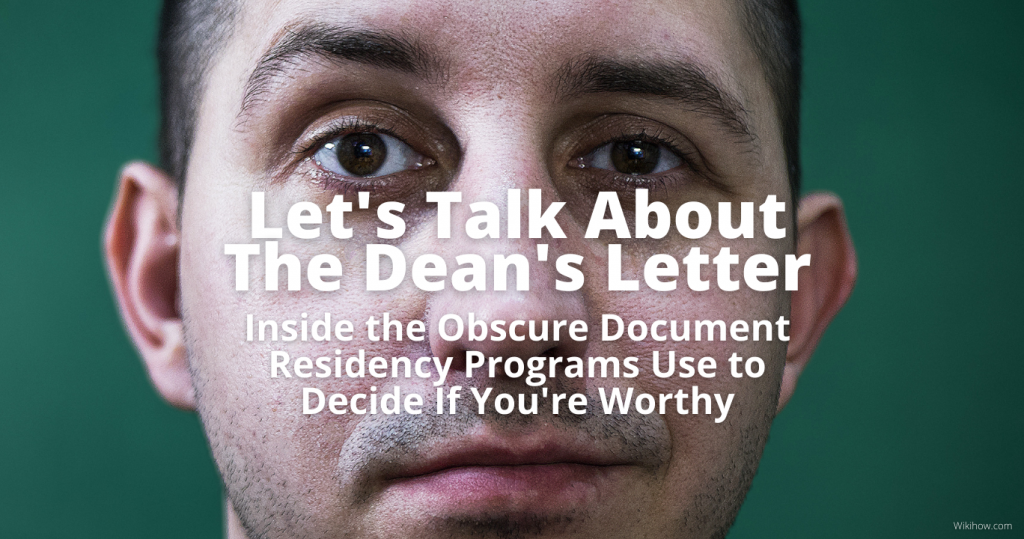

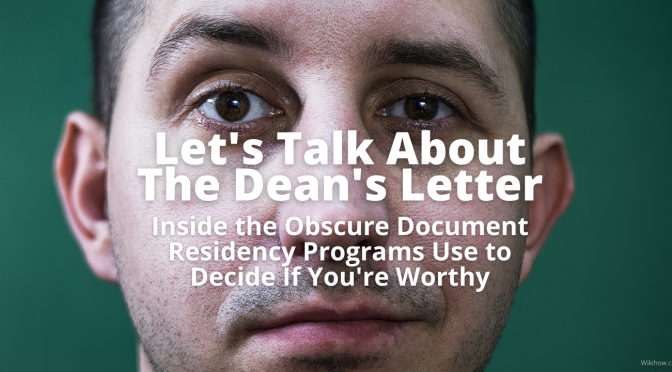


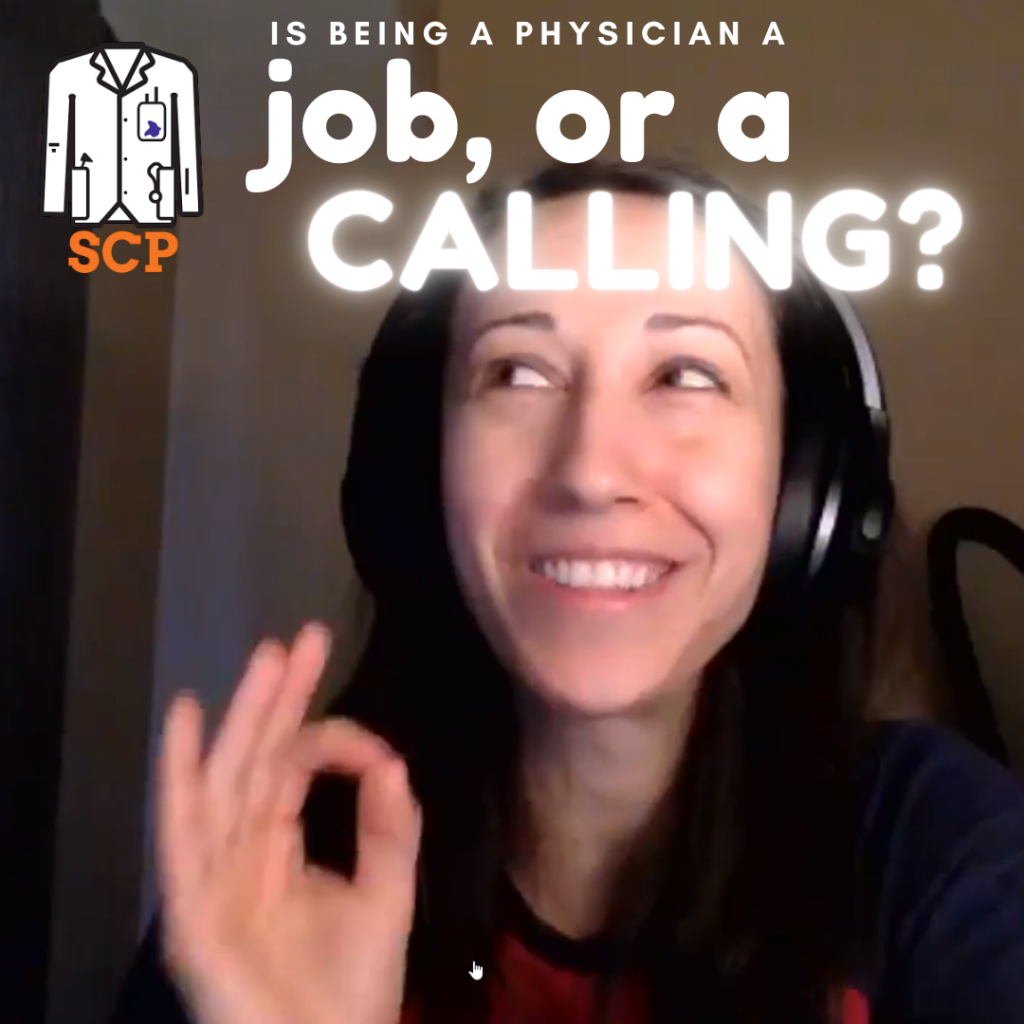





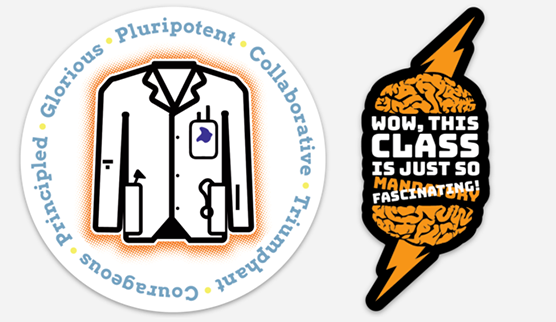



 Listener Nathan called in to the SCP Hotline at 347-SHORTCT to ask how research works for medical students. Is it necessary? Is it recommended? How do you find research to do? Irisa Mahaparn, Miranda Schene, Emma Barr, and newcomer Nadiah Wabba are on hand to discuss the roles of research in med school, how it can help a residency applications, for which residency applications research is a recommended component, and how it all works.
Listener Nathan called in to the SCP Hotline at 347-SHORTCT to ask how research works for medical students. Is it necessary? Is it recommended? How do you find research to do? Irisa Mahaparn, Miranda Schene, Emma Barr, and newcomer Nadiah Wabba are on hand to discuss the roles of research in med school, how it can help a residency applications, for which residency applications research is a recommended component, and how it all works.